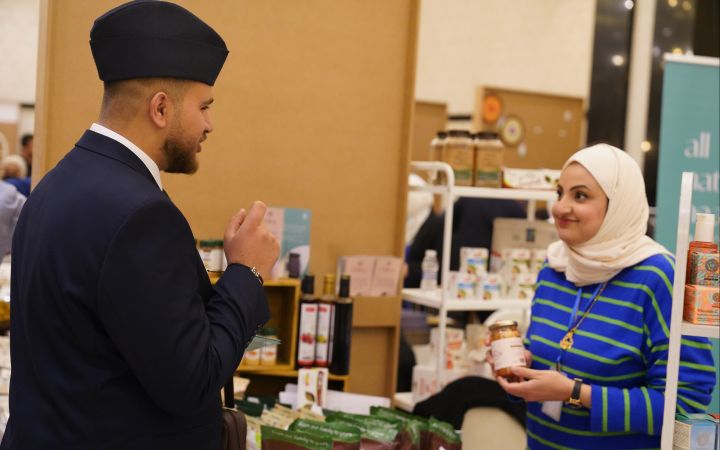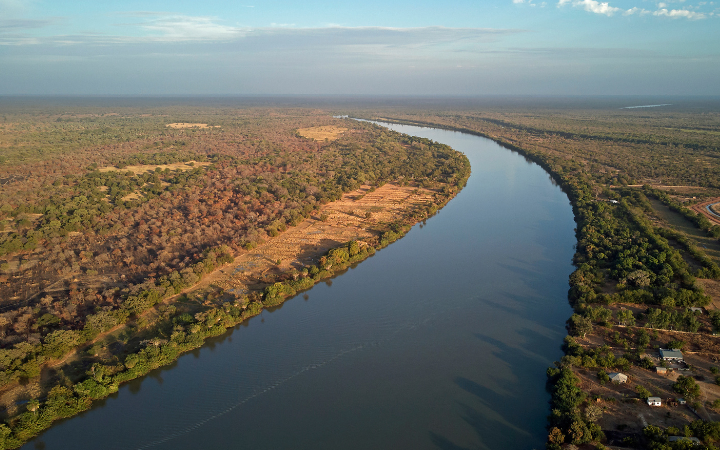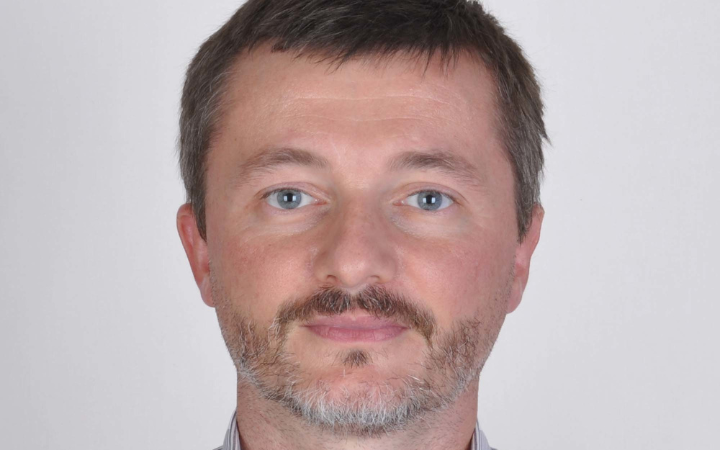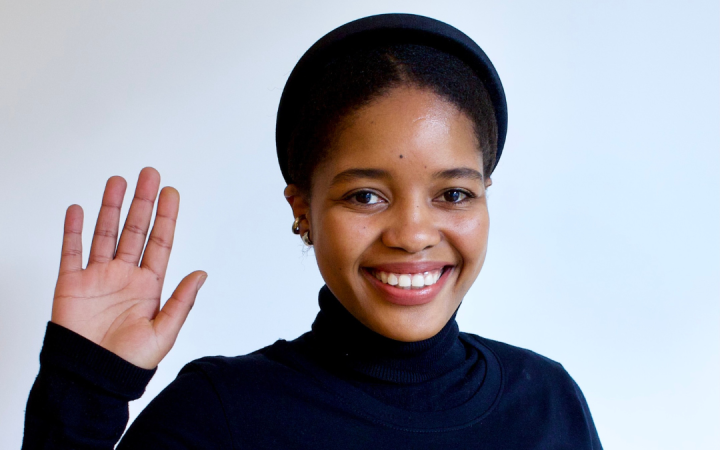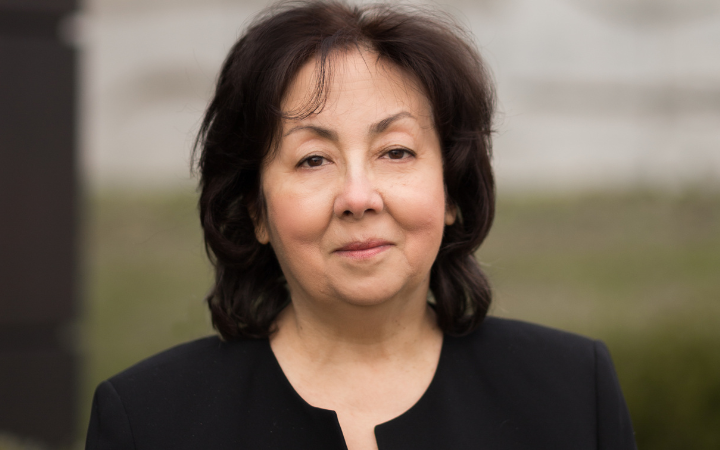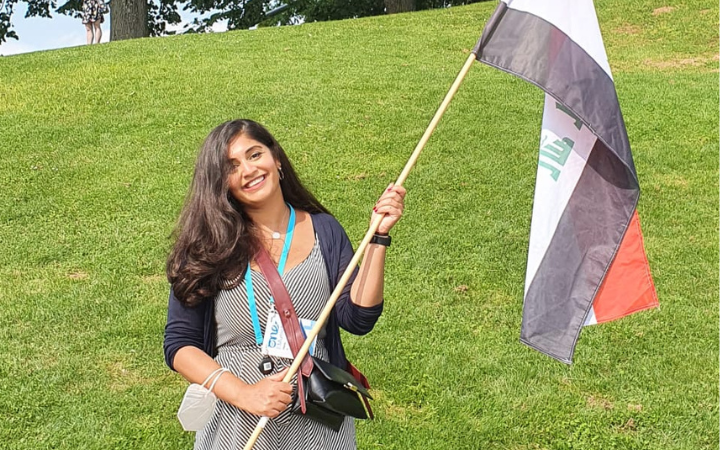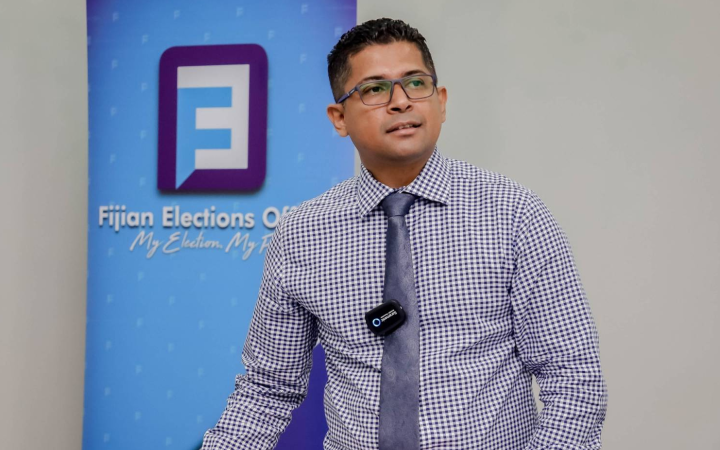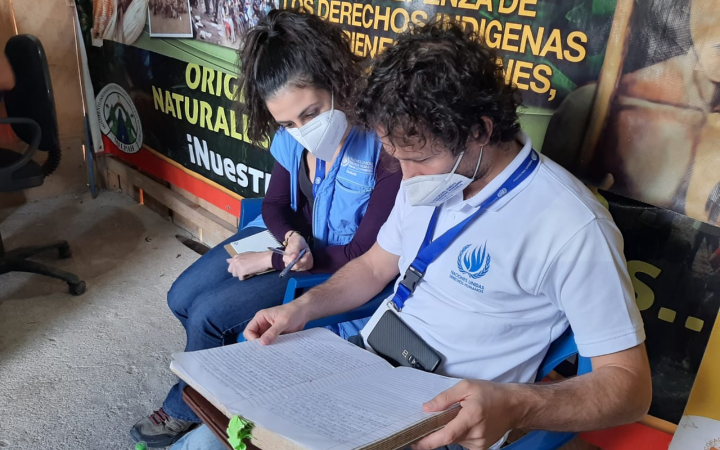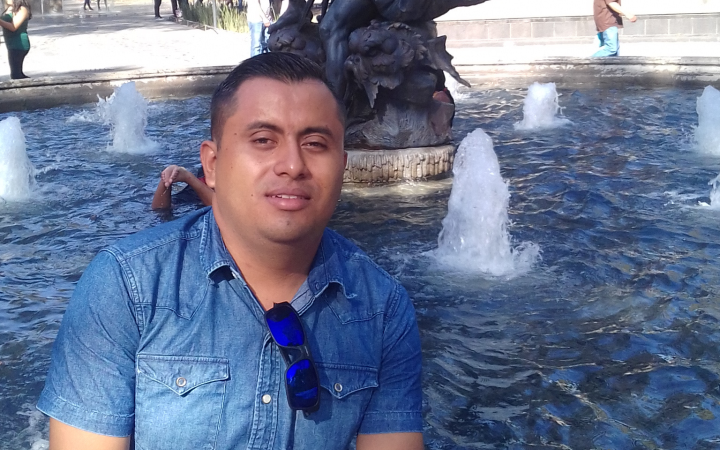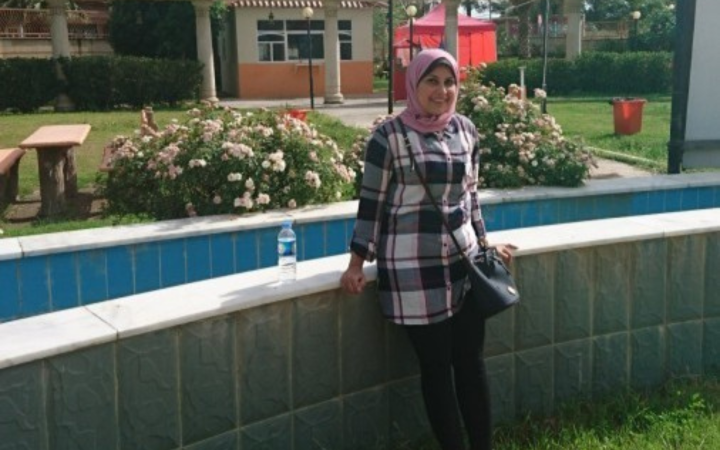Displaying 131 - 140 of 258
6 November 2022, Hiroshima, Japan - Shumoos Jaber advocates for plant-based solutions to health and climate change in Iraq. Shumoos had become a vegan while she was in Malaysia, where she completed her master’s degree in biotechnology. When she returned to Iraq, she found that plant-based meals were not readily available in the country. This gap in the market sparked the idea that Shumoos transformed into a business over the next few years.
“We understood that we had to change the strategy and go into the communities because our people deserve it. We started for the first time in the history of the country a community ambulance system. People now can call a toll-free number and the ambulance will drive to the patient’s doorstep, pick the patient up and drive the patient to the health facility.”
"Government officials were able to see the complexity and the integrated nature of all sectors. How, for instance, a change in tourism policies affects environmental policies, food production policies and so on. It also gave insights into the positive impact of fine-tuning some policies."
"Men in my field are judged on their potential, whereas women by their past accomplishments. There is always so much more you have to prove as a woman to get leadership roles, participate in specific projects and be acknowledged for your contributions."
"UNITAR’s programme, on the other hand, welcomes professionals that do not necessarily have a traditional career in diplomacy but want to develop their knowledge and gain skills. Doctors, journalists, activities, artists, educators like myself, students, mid-career professionals… all have a chance to learn and contribute to the world of diplomacy."
"Not only it was helpful because I learned the theory, but every time I had to do an assignment, I was doing it for my company. So, I would build a business model for the assignment knowing that I would use it and apply it in my company and also would benefit from the revisions and feedback.”
I was thrilled to be able to write about the things that I practiced on a day-to-day basis and freely discuss the theoretical aspects without any restraints, a freedom that only academia provides us.”
"When working on human rights issues it is often not easy to find mutually beneficial solutions, especially when violators may be sitting at the negotiation table. However, the ability to carry out an interest-based approach allows me to analyze situations more comprehensively and to come up with options that were not being initially considered."
"It seems simple, just entering some data and calculating it, but we had to look into other aspects that play an important role in mercury emission. For instance, for some of these categories, we had to go through data on mercury importation from the last 3 years. We also had to work closely with other ministries to get an accurate assessment of these importations."
“Through the discussion platform, I have got to connect with policymakers, researchers and professionals working on the agriculture sector in different countries within the MENA region.”


